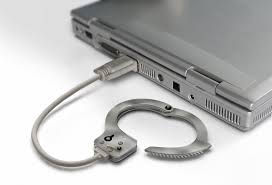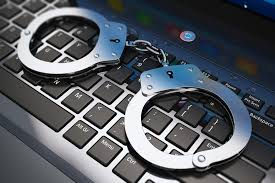Digital Citizenship
Digital Law
Digital Law
Digital law is “defined as the electronic responsibility for actions, deeds which is either ethical or unethical” (Digiteen, 2014)
According to Ribble (2011) digital law is the “electronic responsibility for actions and deeds. Are users aware of laws (rules, policies) that govern the use of digital technologies?”
Digital citizens need to understand what is ethical vs unethical in terms of digital technology use.
There is a difference between ethical matters vs a legal matters. Legal issues involve characteristics of law, whereas ethical issues, which may or may not involve legal issues, are about what is deemed right or wrong by the users.
It is everyone’s responsibility to understand legal and ethical consequences of our actions.
Ethical issues
-
Copyright access and violation;
-
Liberties and responsibility;
-
Confidentiality and safety;
-
Ethnic perceptions and morals;
-
Cross cultural communication;
-
Pornography.
Legal Issues
Privacy
People often sign privacy agreements online with websites and social media platforms but frequently do not read them. When signing up contact details are given but then only to find that they are used or sold to other companies for marketing purposes without the owner of the details permission.
It is a concern that we have limited privacy today mainly because of the growth of technology which makes it easy for strangers to access our personal information and give it or sell-it to other people, most of the time without our consent.
However there are many times where we sign the so called privacy agreements without even reading them, and this is where the 'small print' is hidden. Also because of technology, there are cameras everywhere that are watching us without even noticing. There is absolutely no privacy in our lives as it is invaded 24 hours a day.
(Digital CITIZENSHIP MODULE MANUAL 2015, First Edition: 2015. Digital Law.)
Digiteen Wiki. [s.a.] Digital Commerce. [Online]. Available at: https://digiteen.wikispaces.com/Digital+Commerce [Accessed 22 November 2015
Ribble, Mike. Digital Citizenship in Schools : Nine Elements All Students Should Know (2nd Edition). Eugene, OR, USA: ISTE, 2011. ProQuest ebrary. Web. 9 December 2015
Lessig’s 2004 book Free Culture: How Big Media Uses
Technology and the Law to Lock Down Culture and Control Creativity
Below is a poster on bad digital habits, retrieved from Educators Technology website:
http://www.educatorstechnology.com/2015/04/a-beautiful-graphic-on-bad-digital.html




